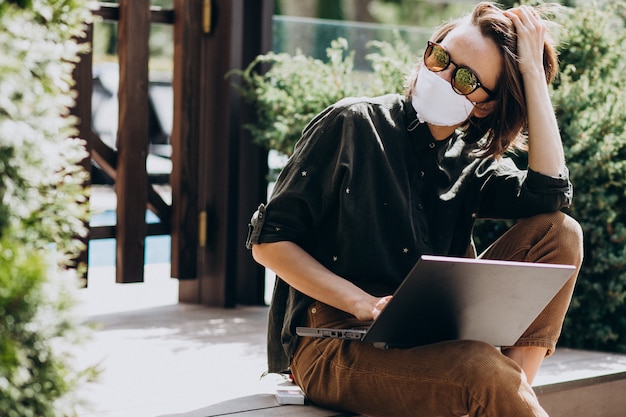How to Manage Student Life during COVID-19

Being a student is never really easy. And the new challenges of COVID-19 result in many rapid changes for students all over the world. We have collected some tips and resources to help you to keep your studies on track and stay healthy at the same time.
Reduce Consumption of Daily News🗞
If you’re feeling down because of negative news, make it a habit to reduce your daily news consumption to once a day or even less. Instead, focus on things you can actively influence. For example, start a new project you wanted to do for a long time. Or be active by helping people in need however you can (while respecting COVID-19 regulations in your country).
Accept less Productivity 😌
It is unrealistic to expect the same level of productivity during the COVID-19 crisis. Even more so for jobs and activities which require concentration and mental work. We liked the texts of Prof. Ahmad on the matter:
- https://twitter.com/ProfAishaAhmad/status/1240284544667996163 [https://www.chronicle.com/article/Why-You-Should-Ignore-All-That/248366/
Keep a Routine ⚓
People who are serving on a submarine, are also confined to a small space over extended periods of time. Their advice: Keep a daily routine, even if it mainly consists of mundane things such as taking a shower in the morning. This helps you to get into a productive and positive state of mind.
Avoid Distractions 🕹
This blog post https://qotoqot.com/blog/improving-focus/ details how the author reduced distraction in his workplace. For a quick glance, only read the “Summary” sections.
Stay healthy 🧘♀️
Don’t neglect your body just because you have to stay at home a lot. Normally, we walk around a lot to get to places on campus or in the city. For many, local gyms and sport clubs are closed. So, try to compensate for this as much as you can. Staying physically also active helps you to concentrate on your studies. So, if you can, go for a walk everyday. Take regular breaks from sitting at a desk to stretch and walk a few paces every hour or so. Drink enough water (avoid soft drinks) and exercises at home (there are many quick workout routines on Youtube). By keeping these tasks short and easy you will find it easier to get yourself to actually do them. They can also be part of your daily routine.
Access to Academic Information 💁
Right now, Open Access to academic and educational resources is more important (and convenient) than ever. However, there are many ways to access commercial academic content as well. Sadly, we can’t just visit our local (campus) library right now to find books and articles for our studies. Many libraries offer extensive online services like licenced access to academic literature via VPN (a software to access the university network from home) and some even scan and email on demand. Besides these better known sources there are also a number of lesser known systems as well:
- The Internet Archive, the largest purely digital library made its so-called National Emergency Library freely available
- Some journals and publishers are temporarily forfeiting their access fees
Online Courses 🎓
If you want to use any extra time you have, consider signing up for one of the many online courses which are freely available right now.
Conference like a Pro 🐒
Digital conferences
– get a good microphone and webcam (if you can)
– also your smartphone already has a good microphone and camera (just make sure to properly position it)
– mute yourself in conferences if you aren’t speaking
Conference Software
There has been some controversy about Zoom, a currently popular Video conferencing tool. This article highlights some viable alternatives: https://www.theverge.com/2020/4/1/21202945/zoom-alternative-conference-video-free-app-skype-slack-hangouts-jitsi The article includes important information about features, costs (if any) and limitations. Also check your institution’s website to find out what they recommend.
Remember to wash your hands often and avoid unnecessary contact! 😉
